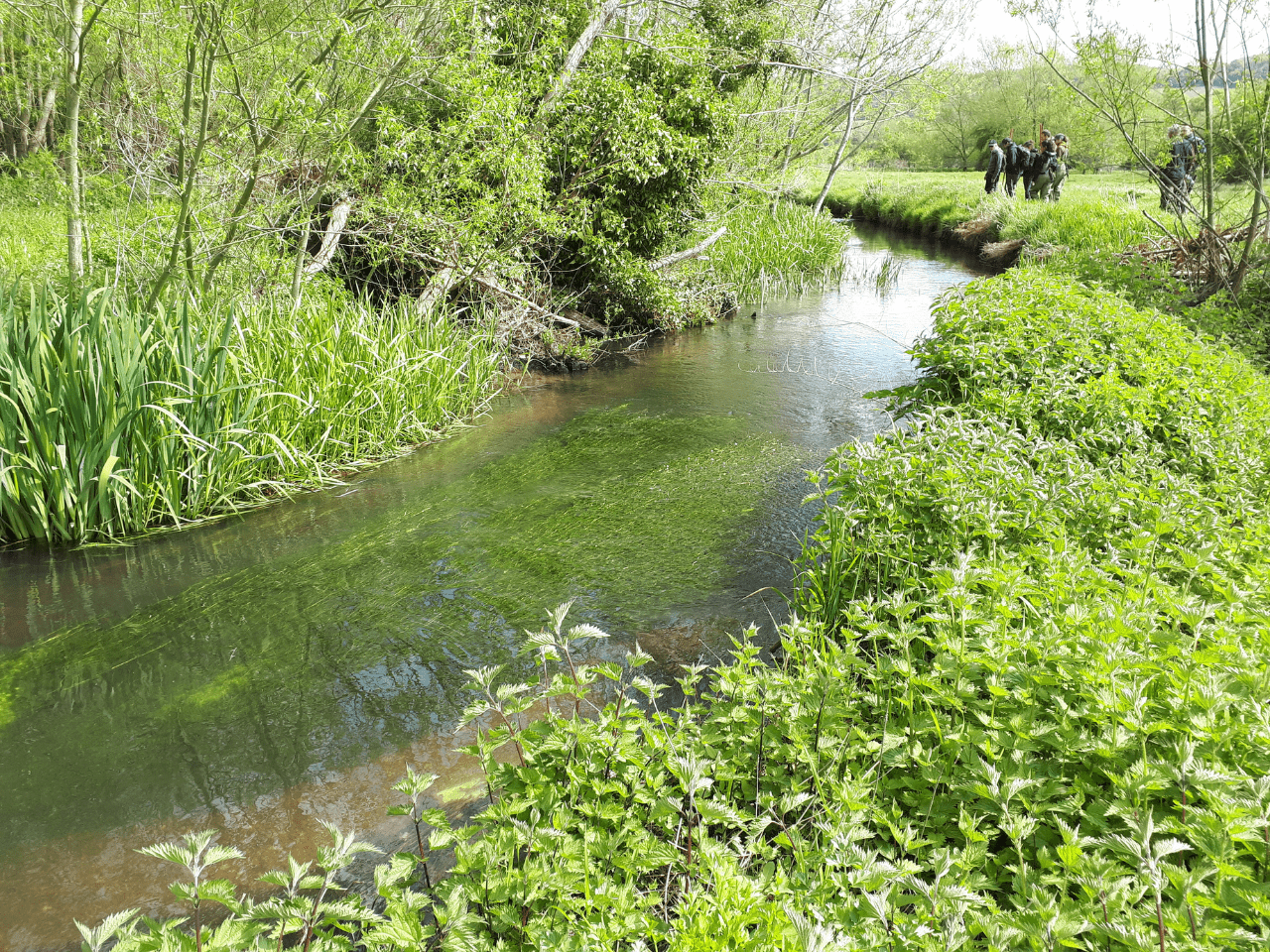“There is nothing better and more rewarding than seeing wildlife spring back to life on a river, especially when you have been involved in all aspects of the project, from conception through to design, delivery and monitoring. Seeing the direct impact you have had for the environment – makes this a very special job.” Toby Hull, Head of Restoring Rivers and Catchments
We’re currently recruiting to our Restoring Rivers and Catchments Team. It can be hard to picture yourself in a new role from just a job description, so we have curated the top reasons to start your career with us and help bring rivers back to life.
1. Job satisfaction and pride in your work
“If you love the outdoors and rivers, and are concerned by the issues facing them, working for SERT will help you achieve a real sense of job satisfaction. Being able to scope new projects, obtain funding, develop and design the project and then go out deliver the physical works is hugely satisfying and rewarding – and rare to be able to do all of that.” Harry Clark, Project Officer.
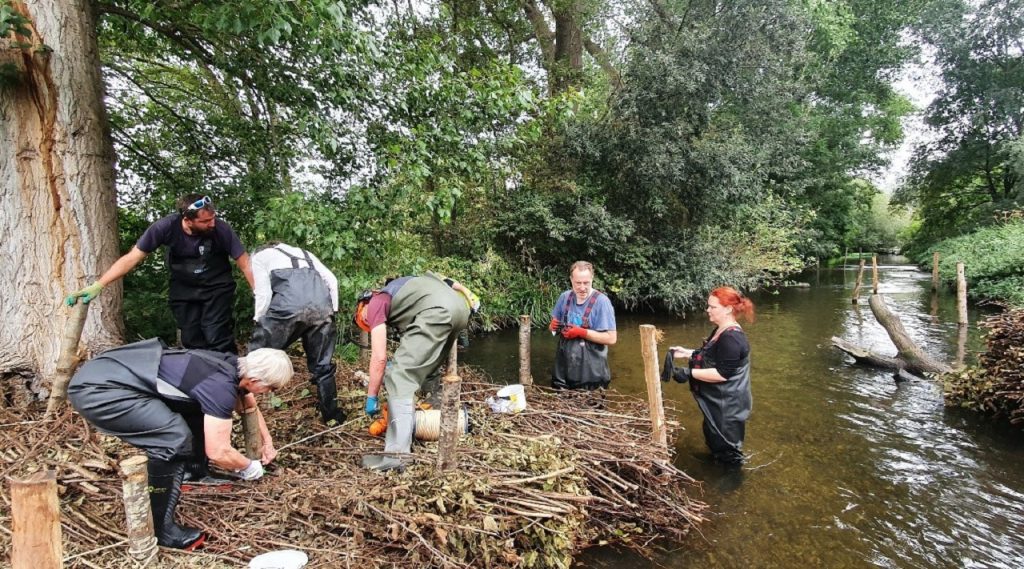
In many jobs, it can sometimes be difficult to see the direct impact your work has had. But at SERT you can see this in spades. Working as a Project Officer, or Senior Project Officer, you manage projects from conception to completion. You help identify what needs to happen, develop, and design the works, obtain permissions and funding, and then physically make the change on the ground. There is no greater sense of pride than seeing a stretch of river come back to life thanks to a project you designed and delivered.
“It’s an extremely friendly working environment with open-minded people. There is such a wide range of expertise across colleagues and that makes for great learning opportunities.” Caroline Ritchie, Project Officer.
2. A varied and unique role
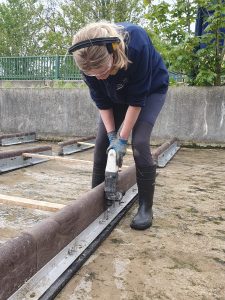
Working in the RRC Team is like no other career. There is a huge variety and scope in the type of projects you might be working on any given week. We break out concrete to naturalise riverbeds and banks. We create and enhance habitat by introducing wood and gravel back into rivers. We remove river barriers such as old concrete weirs to open up fish migration routes and to let rivers flow freely once again. We build wetlands and install ‘end of pipe’ solutions to improve water quality. We install leaky woody structures and build sustainable urban drainage solutions (SuDS) to help reduce flood risk. We love making meaningful and physical changes to the environment.
So what does a typical week look like for one of our Restoration Officers? You might start the week with the RRC Team meeting to catch up with colleagues on projects and a project meeting with external partners such as the local water company, Environment Agency or local council. On Tuesday, you’d head out to the river for a walkover with a local landowner, identifying opportunities to restore a stretch of river. Wednesday you could be installing large woody material in a chalk stream with an enthusiastic and friendly group of volunteers. Perhaps on Thursday you’re designing a wetland to clean up pollution before it enters a chalk stream. Finally, Friday you might pull together a proposal for a project, finalising the outline design and sending it off to a prospective funder.
As SERT works across the South East of England, our RRC Team have projects to improve rivers in a variety of different places and habitats ranging from working in highly urbanised sections of river, to public parks, through to small villages and across private farmland where you can really embrace the peace and quiet, working to improve wetlands, backwaters and chalk streams.
“We have a brilliant team with a wealth of experience and expertise in the river restoration sector.” Luke Beckett, Assistant Project Officer.
3. A wide range of training and a whole career pathway
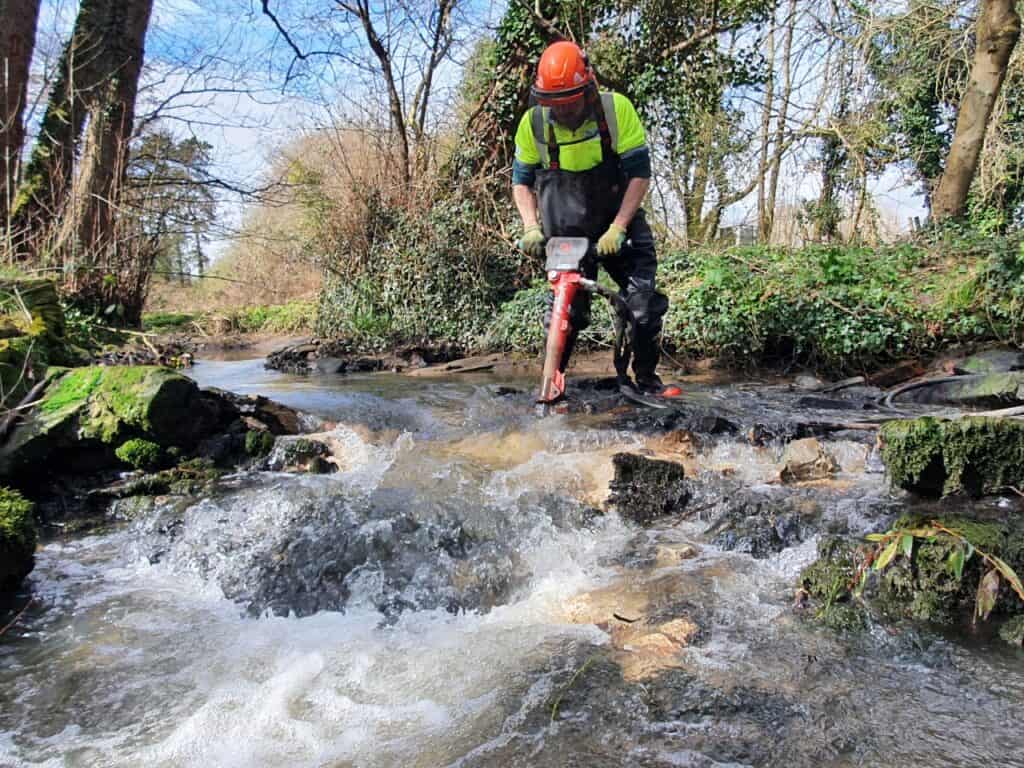
Joining the RRC Team at SERT, you are provided with formal training, in-house experts and projects to build your skills and experience, which combined helps you to progress your career at SERT.
Practical training for countryside management often includes outdoor first aid, brushcutting, chainsaw, and basic tree felling certificates. Desk-based training has covered wetland design, CDM, contract writing, site safety and softer skills such as funding and project management. And not to mention river surveying techniques such as River Morph, Sniffer assessments for fish passage and Redd surveys. As an organisation, SERT’s action is led by sound scientific understanding and best practice. Projects at SERT span across multiple teams, you get to learn on the job from the years of experience in the RRC Team, as well as the varied skills and knowledge from the other teams at SERT.
If the knowledge from just SERT isn’t enough, we are part of The Rivers Trust movement – a network of 65 other rivers trust across England, Wales and all Ireland – the fastest growing environmental movement of today. We network at conferences, as partner on projects and share best practice in our day to day work to ensure we are all learning as one.
Our Project Officer, Harry Clark, joined the Trust as an Assistant Project Officer. Since then he has worked on a range of projects and been trained in many aspects from the use of chainsaws to underground cable avoidance. Harry spent time out in the field installing natural flood management measures, supported large-scale restoration work for our Acacia Hall River Restoration and was then supported in developing and leading his own projects. He’s learnt a wide range of skills and developed a sound understanding of managing rivers and their catchment while working with us which has led to his promotion.
We are one of the largest trusts and offer good career progression through a variety of roles within our trust. Or if you wanted to move to a different region, your skills would be directly transferable to another rivers trust so you’re in safe hands with us.
“It is rewarding and fulfilling. To work alongside passionate, genuinely interested individuals who, like you, are in it for the love of the job, environment and reward it offers.” Luke Beckett, Assistant Project Officer.
4. We’re a fun and friendly team
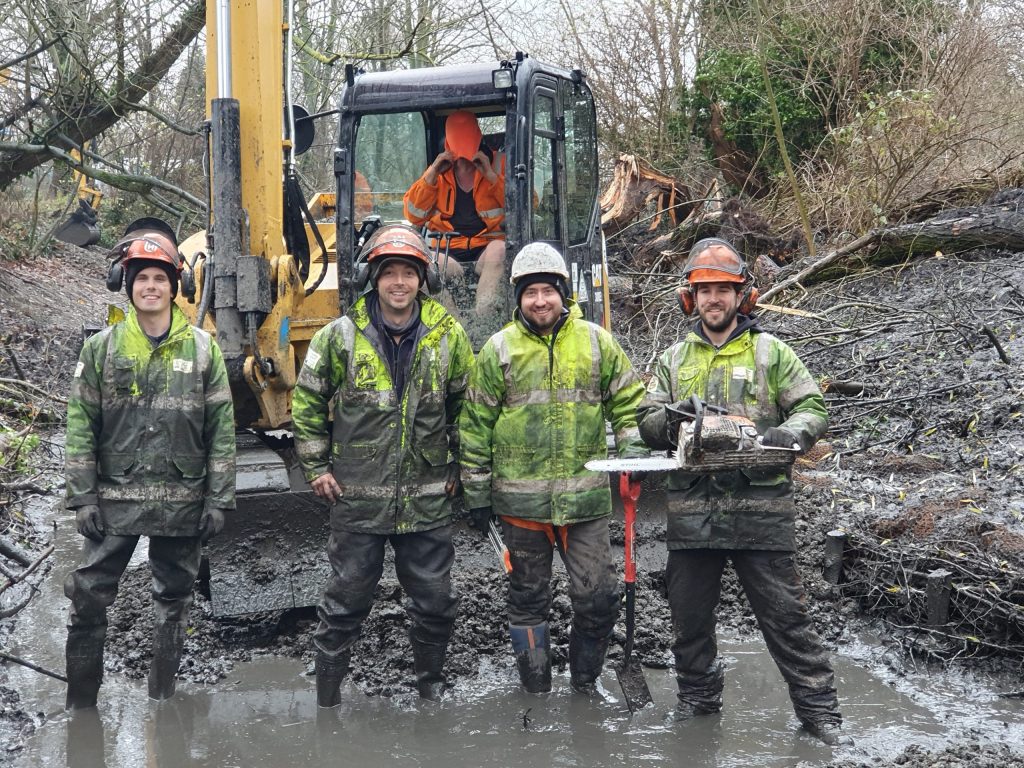
We know everyone says we’re a fun and friendly team, but we really are. We’re all in our roles because we care about the environment and want to make positive change. We’re passionate, supportive, creative and our core driver is that we make the right difference for nature.
A bonus? We love our puns!. So don’t hold bass, there is no trout about it – read our job adverts and if you’re interested in these eely fintastic roles (which we think you will be) let minnow.


